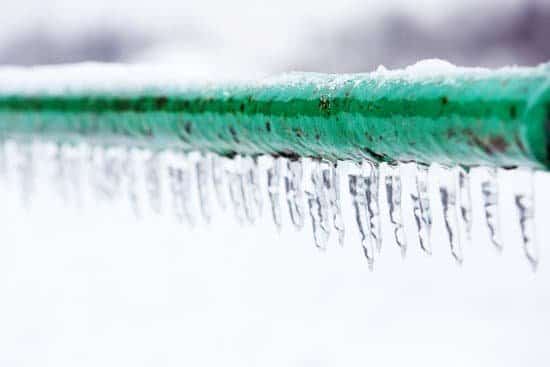The plumbing in your home could be in danger when temperatures dip below zero, and the last thing you want to deal with when it thaws is a burst pipe, which can lead to substantial damage in your home.
All that water can eat through drywall, destroy carpets and fry electronics. The Federal Emergency Management Agency estimates that just two inches of water can cause more than $10,000 in repairs and replacement of flooded items. Six inches of water can add up to more than $30,000!
Before the thermometer plunges, here are things you can do to prevent pipes from freezing:
- Disconnect outside hoses from faucets
- Insulate water pipes, especially along exterior walls and unheated areas
- Add insulation to walls and attics where pipes may run
- Know where the shutoff valve is to your home
Once the sub-zero weather hits you should:
- Let faucets drip to prevent freezing
- Keep the thermostat above 55 degrees
- Make sure garage doors are closed
- Open kitchen and bathroom cabinets to allow warm air to circulate around the plumbing
So you’ve prepared and kept as much heat as possible going to cold areas, but the cold air still froze a pipe; what now? Stay calm but act as quickly as possible to:
- Locate where the pipe is frozen
- Open the nearest faucet to relieve pressure when the ice thaws
- Slowly warm the pipe with a heating pad, hairdryer, space heater or wrapping it with hot towels – never use a blow torch or open flame
If the pipe has cracked or broken, immediately turn off water at the main water valve and call a plumber. Shutting off the water will prevent further damage.
And if you have damage from a broken water pipe:
- Try to prevent further damage
- Contact your insurance company as soon as possible
- Take photos or video of the damage
- Don’t make permanent repairs until the insurance company adjuster inspects the damage
- Keep all of your receipts for emergency repair work or temporary housing if you are forced out of your home or apartment
Once a pipe freezes, odds are it will happen again. Here are some tips to prevent it in the future:
- Hire a plumber to relocate to a warmer area
- Add more insulation in walls, attics and crawl spaces
- Wrap the pipe with electric heat tape, when temperatures drop, plug it in
Remember, if a burst pipe sends water into your home, contact a California Casualty Claims advisor as soon as possible; we can help get you started on the clean-up.
For more information visit:
https://bit.ly/30Q8dvP
https://bit.ly/36nEewu
https://rdcrss.org/2vmD9bp
https://bit.ly/3aG6xJW
https://bit.ly/2vnJ9Rj
This article is furnished by California Casualty, providing auto and home insurance to educators, law enforcement officers, firefighters, and nurses. Get a quote at 1.866.704.8614 or www.calcas.com.
- California Casualty Earns Financial Stability Rating® of A, Exceptional, From Demotech, Inc. - April 28, 2025
- Music & Arts Grant Recipients – 2024 - December 13, 2024
- Understanding Auto and Home Insurance Rate Changes - December 3, 2024

